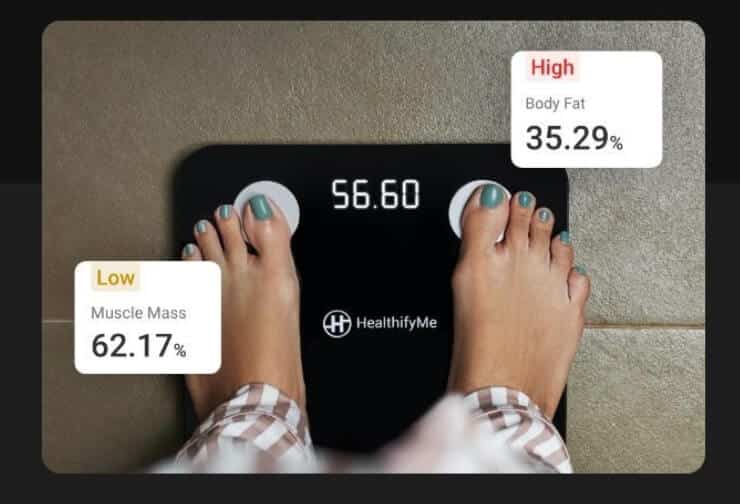In the realm of health and fitness, understanding body composition has become more crucial than ever. While the Body Mass Index (BMI) was once the gold standard for assessing health, it falls short in considering body composition. Enter modern tools like the body fat scale, which provide a more comprehensive view of one’s health status.
What exactly is a body fat scale? It’s a digital device that goes beyond just measuring weight. It estimates various body composition metrics such as body fat percentage, muscle mass, water retention, bone mass, and even visceral fat. These scales operate on a principle called bioelectrical impedance analysis (BIA), where a low electrical current passes through the body to estimate different body components based on their resistance levels.
But how do body fat scales work? When you step on a body fat scale, sensors send a painless electrical impulse through your body, with fat, muscle, and water offering varying levels of resistance. The scale’s algorithm processes this data along with your demographic inputs to provide values for body fat percentage, muscle mass, bone mass, visceral fat, water weight, and BMI.
Understanding the readings from a body fat scale is essential. Each metric offers unique insights into your overall health and fitness levels, helping you track progress, set accurate goals, and monitor potential health risks. By consistently tracking these metrics, you gain a clearer understanding of your body’s composition and how it responds to lifestyle changes.
Why should you consider using a smart scale over traditional weighing scales? Smart scales offer context beyond just weight, helping users interpret changes in body composition, set meaningful goals, and identify health risks early. By tracking metrics like body fat percentage, muscle mass, and water retention, smart scales provide a more accurate reflection of your physical progress, empowering decision-making with real data.
Are body fat scales accurate? While they may not provide clinical-level precision like more expensive tools, they are reliable for tracking trends over time. Despite potential variations in readings, most scales are consistent in showing changes in body composition accurately. Ultimately, while they may not offer diagnostic precision, body fat scales are practical and motivating tools for everyday users.
When considering the pros and cons of using a body fat scale, it’s essential to weigh convenience, trend tracking, holistic metrics, and tech integration against any inconsistencies in readings, lack of absolute accuracy, and potential limitations in capturing upper body composition.
Different types of body composition scales offer varying features and degrees of accuracy. From basic BIA scales that analyze lower body composition to full-body BIA scales that provide a more holistic view, the choice depends on your preferences and requirements for body composition analysis.
Why do body fat scales vary in price? Factors such as sensor quality, number of metrics measured, connectivity options, brand reliability, and software features contribute to the price differences. When selecting a body fat scale, consider which features align best with your health goals and budget.
Key features to look for in a body fat scale include the number of metrics measured, display type, app integration, user profiles, data storage capabilities, accuracy and consistency, and battery life. By choosing a scale with these features, you can ensure a comprehensive and reliable tracking experience.
To get the most accurate readings from your body fat scale, adopt habits like weighing yourself at the same time daily, avoiding measurements post-exercise or after meals, ensuring clean and dry feet, placing the scale on a flat surface, and sticking to one device for consistency. These practices can enhance the accuracy of your body fat scale readings over time.
In the debate between smart scales and traditional measures, smart scales offer a more precise and detailed analysis of body composition, making them a valuable tool for those serious about health and fitness. While traditional methods like BMI have their place, smart scales provide a more nuanced understanding of one’s health status and progress.
The PC Smart Scale stands out as a top choice among smart scales, offering a comprehensive range of metrics, real-time app sync, progress insights, AI coaching support, and a one-month HealthifySmart Plan. By choosing a smart scale like PC, users can access a wealth of data to guide their health and fitness journey effectively.
In conclusion, while smart scales may not be perfect, they offer a smarter alternative to traditional weighing scales. By moving beyond basic weight tracking to full-body composition analysis, users can gain a deeper understanding of their health and make informed decisions. Remember, health is a multifaceted entity, and tools like smart scales can provide valuable insights to support your overall well-being.


